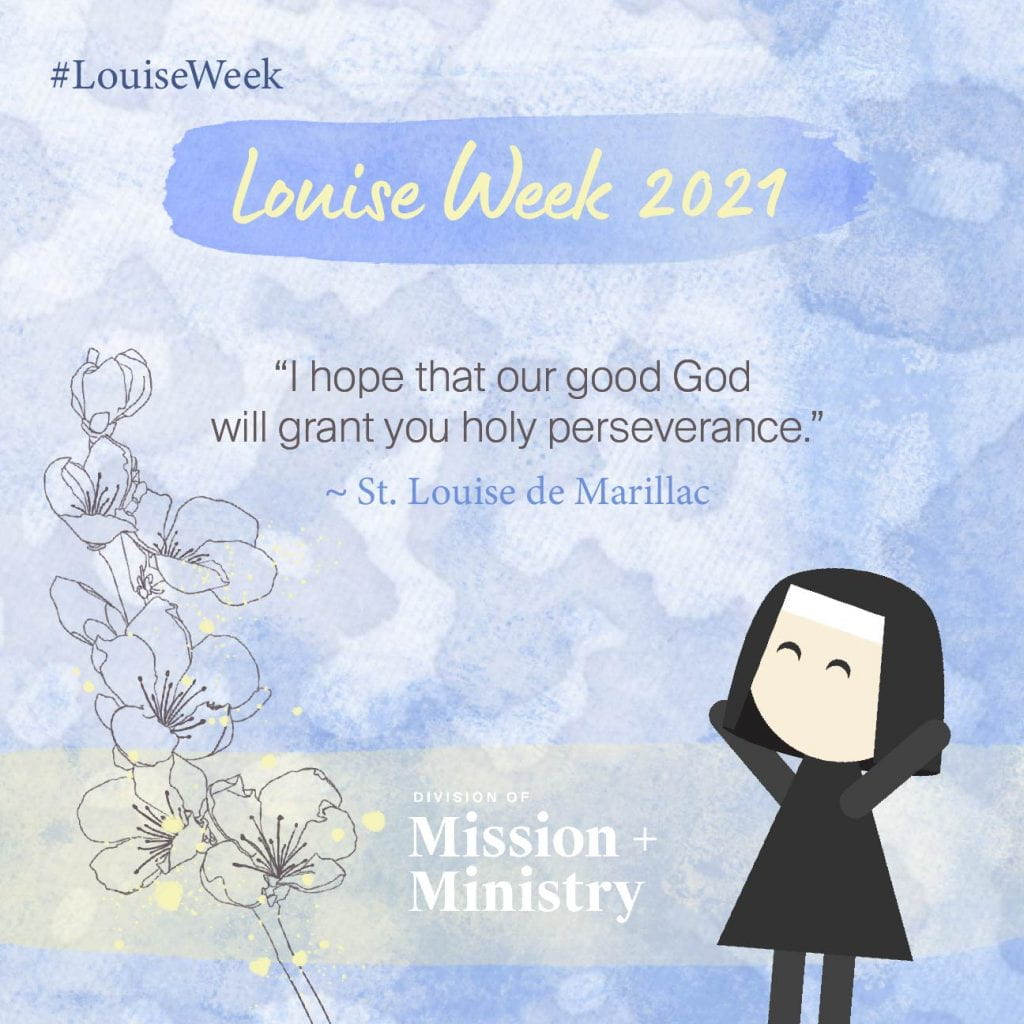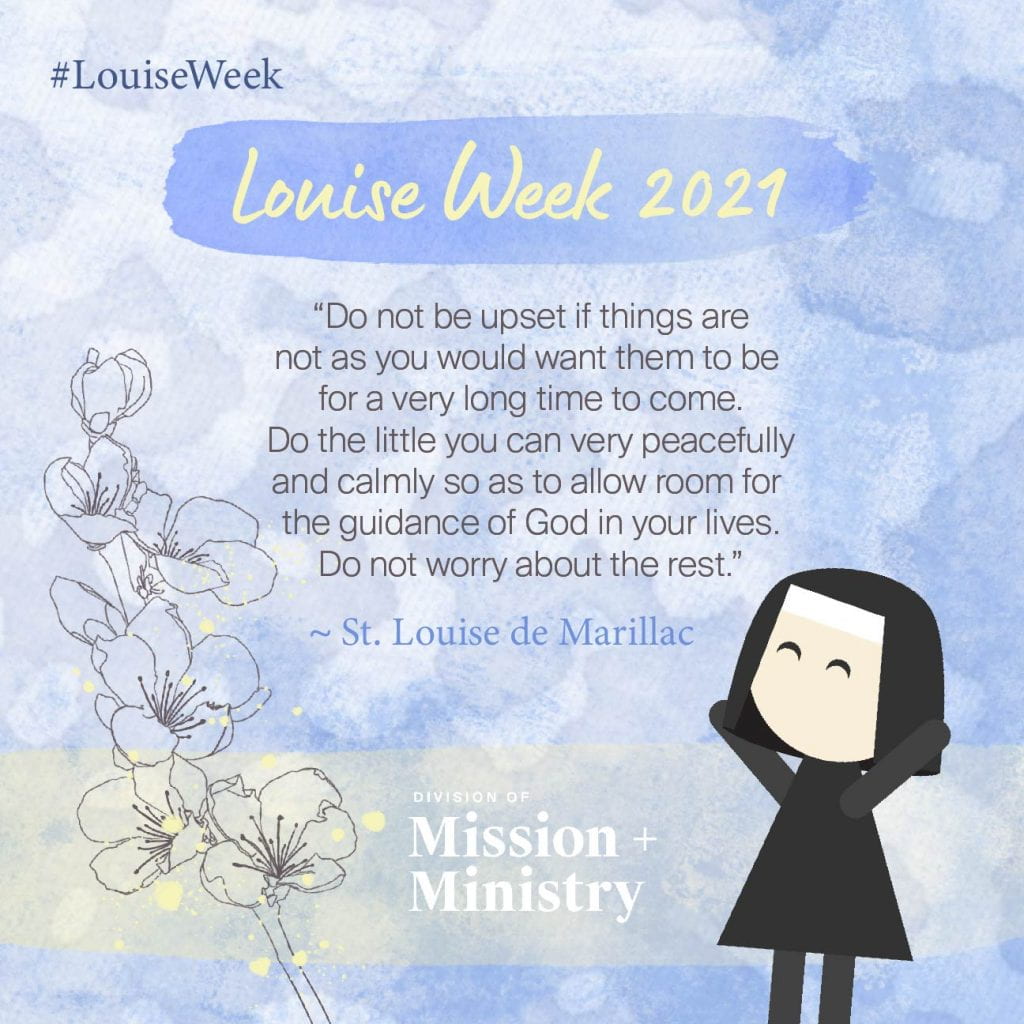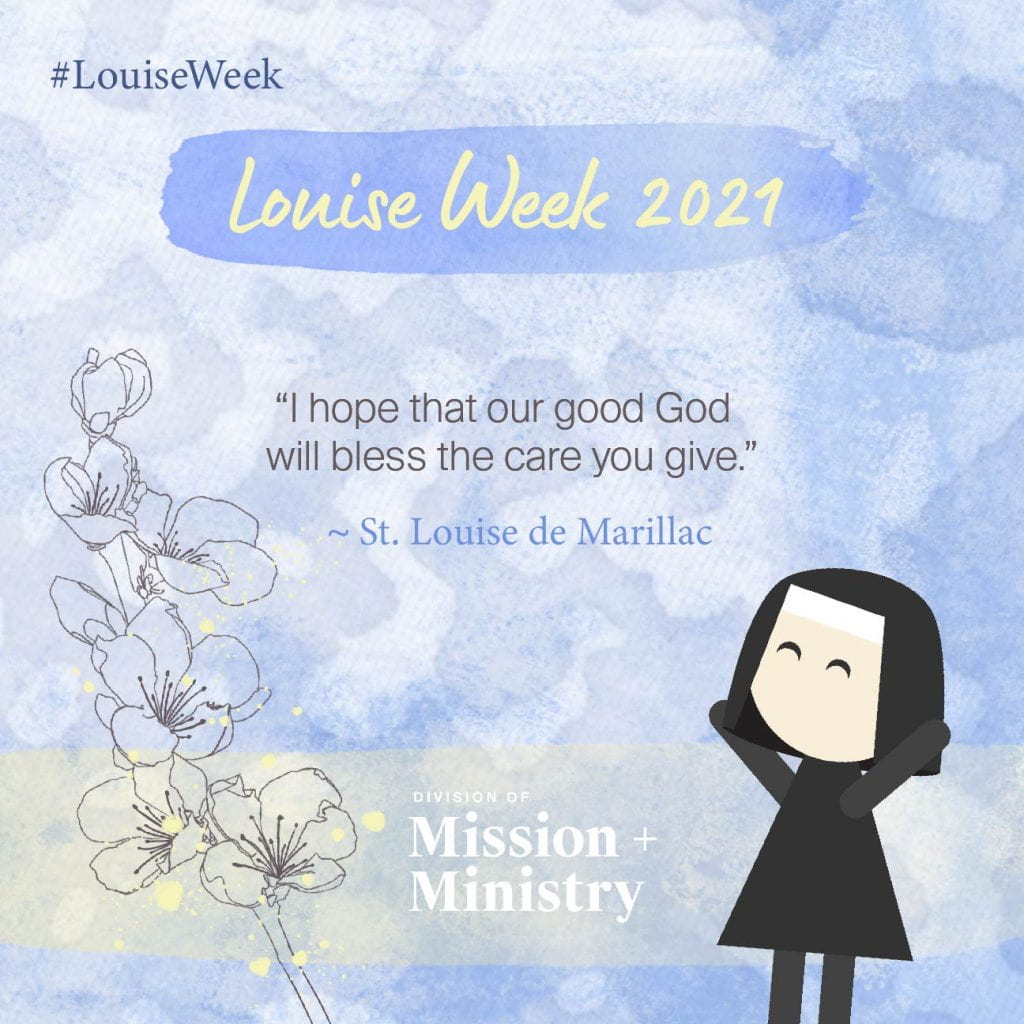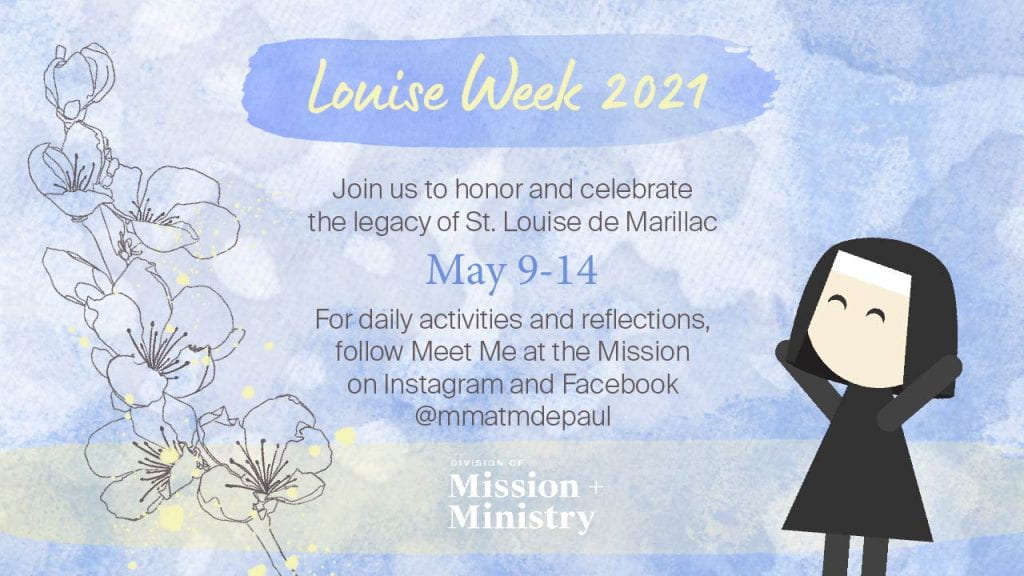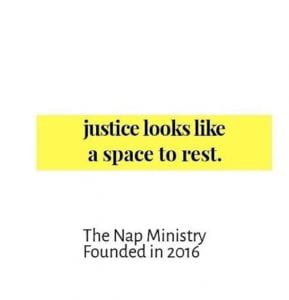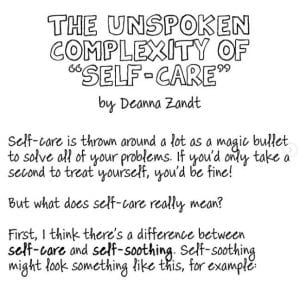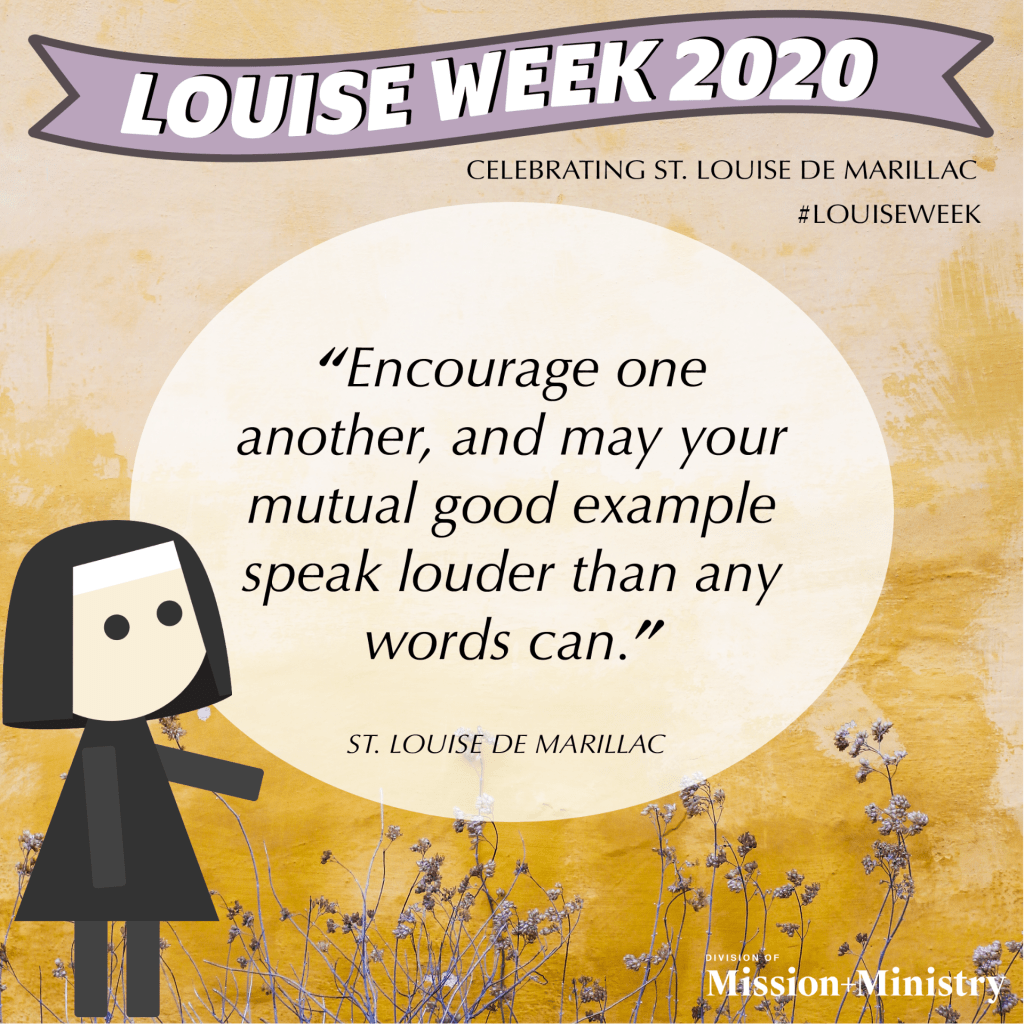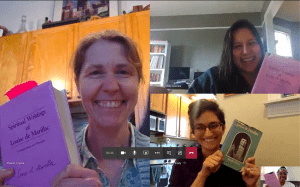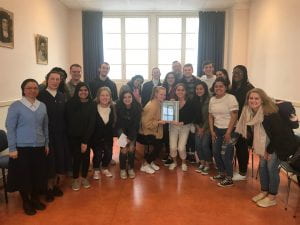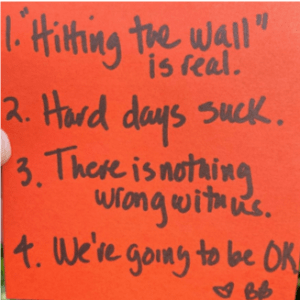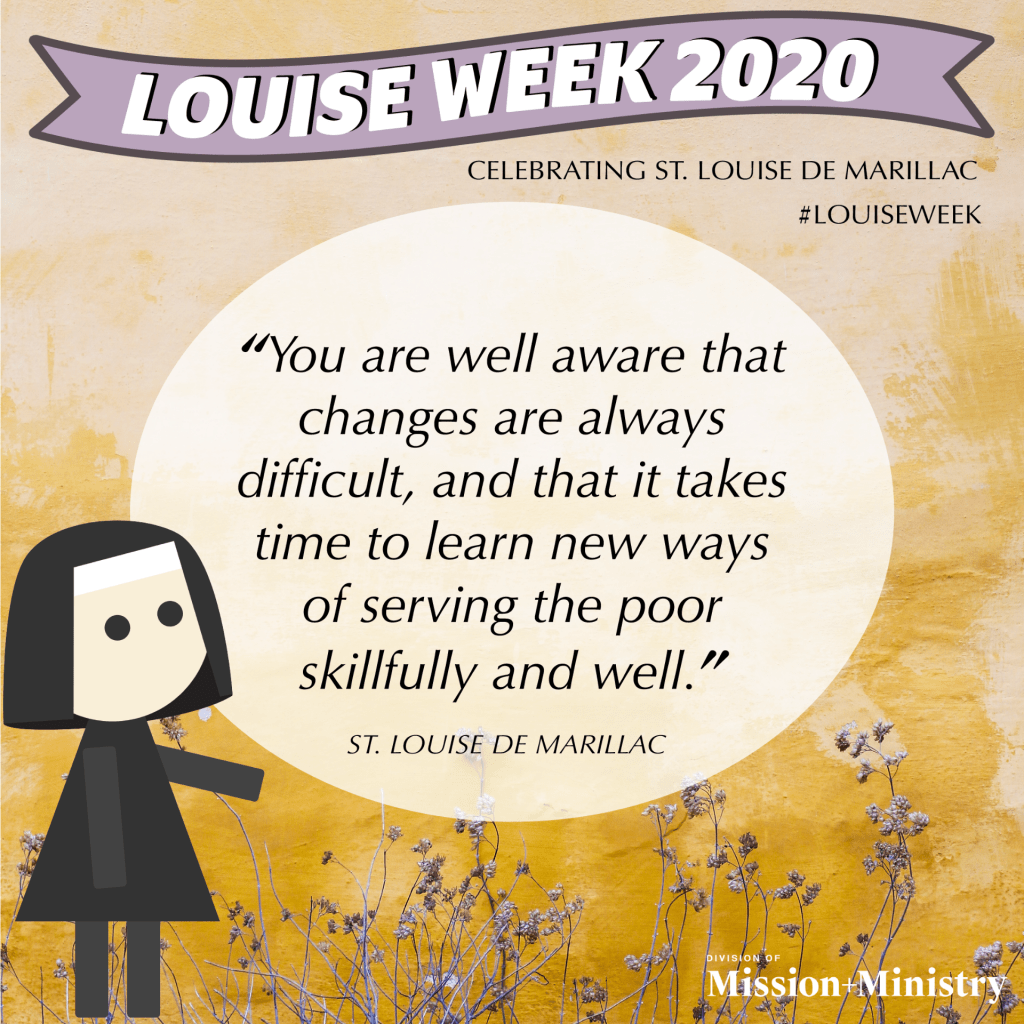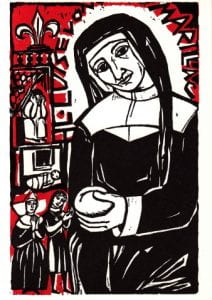In honor of Saint Louise de Marillac’s Feast Day on May 9th, the Division of Mission and Ministry invites DePaul students, faculty, and staff to celebrate Louise Week 2022.
Louise de Marillac lived in a time of great upheaval and crisis. She along with numerous female contemporaries provided shoulders that bore the weight of a country racked by war, entrenched in political upheaval, overwhelmed by the plague, and struck by hunger. The shadows of her own life’s story were filled with grief and loss and provided a vehicle for transformation that led to creating new pathways for women. Her story reminds us of the possibility of light transcending darkness.
Connecting to Louise’s story and tying it to the present can encourage us in times of suffering and uncertainty. As we seek healing from the impacts of living through a pandemic for the last two years, Louise’s example calls us to community, healing, and rekindling joy.
Join us May 9-13 to pause, connect, and celebrate St. Louise’s legacy alive today at DePaul. Just as she was sustained by the generosity and goodness of those around her, may we too take the time to pause, uplift, and celebrate with gratitude those who sustain our journey.
Curious to learn more about Louise’s personal journey? Check out this virtual six-day pilgrimage created last year that follows her footsteps across Paris.
Louise Week 2022 Events:
Louise Week Mass
Monday, May 9 (Noon)
Loop Miraculous Medal Chapel and LPC St. Louise de Marillac Chapel
Celebrate the Feast Day with a celebratory Mass at 12 pm at both campuses. Everyone is welcome!
Louise Feast Day Lunch
Monday, May 9 (12:45pm – 2:00pm)
Loop 11th Floor Terrace, LPC Student Center 104
Celebrate the Feast Day with a celebratory lunch at 12:45 pm. Everyone is welcome!
- In the Loop, join us on the 11th floor terrace in the DePaul Center. RSVP here for the Loop lunch: https://louise-feast-lunch-2022.eventbrite.com
- For the lunch in Lincoln Park, no need to register, just come to Catholic Campus Ministry (Student Center – Suite 104).
Food For Thought
Monday, May 9, (11:30am – 12:30pm)
LPC Student Center 314A
Join CCM’s Food for Thought and Meet Me at the Mission for lunch and a meaningful conversation about St. Louise de Marillac’s living legacy.
HPW – Wellness Wednesday
Wednesday, May 11, (12:00pm – 12:30pm or 4:00pm – 4:30pm)
Arts & Letters Hall 204
Join us for our signature Wellness Wednesday series! Our peer health educators will feature a different topic that aims to promote wellness and encourage you to take care yourself and others. During Louise week, Mission and Ministry will join us to talk about healthy boundary setting.
Cafecito con Tepeyac
Thursday, May 12, (3:00pm – 4:00pm)
LPC Student Center 325
Join us for a conversation about women’s leadership, the legacy of St. Louise de Marillac and community with Latinx students. Cafecito and pan dulce will be provided!
Catholic Women’s Group
Friday, May 13, (1:00pm – 2:00pm)
LPC Student Center Suite 104
Join us for a conversation about women’s leadership in the Catholic Church.
DWN Louise de Marillac Spirit & Mentorship Awards
Friday, May 13, (3:00pm)
Zoom
This year, the DePaul Women’s Network is honoring mentors. The awards will be held online on May 13th at 3pm and will feature interactive opportunities to share mentorship strategies, celebrate our mentors and mentees, and hear about the impact that a good mentor has on members of our community. As part of our celebration, we will also be raffling off ten $50 GrubHub certificates! Join us for an afternoon hour full of community, conversations and inspiration from the people living Louise’s legacy!



